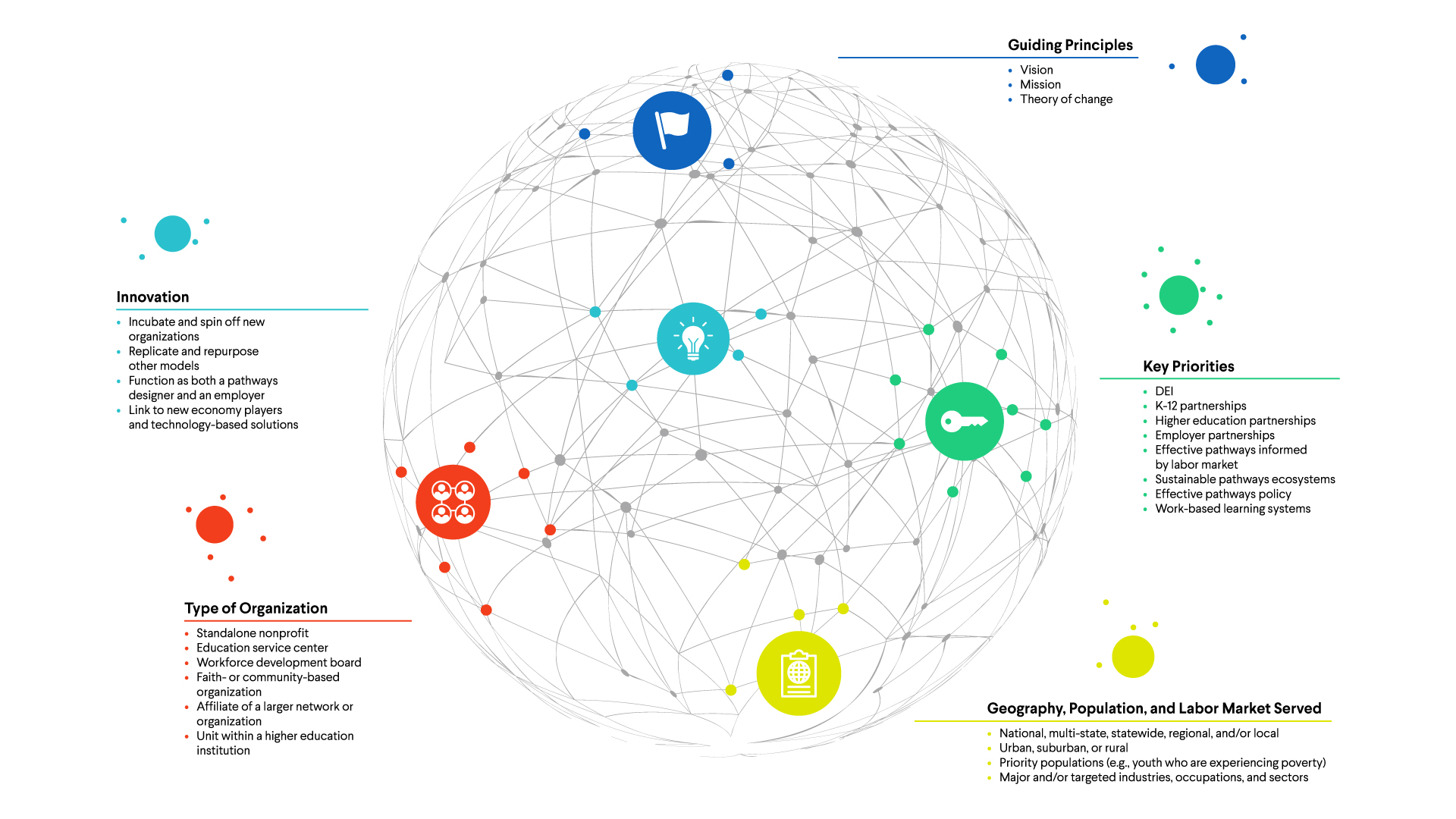
Intermediary Functions and Features in Pathways Systems
November 12, 2020
At a Glance
This resource clarifies the roles intermediaries play in college and career pathways systems. It can be useful for envisioning a brand-new organization or strengthening the intermediary functions of an existing organization. Your organization can use this guide during a strategic planning process or at any time to reflect on its practices, shift its focus, or reconnect to its mission.
There’s no one-size-fits-all approach to designing an intermediary, because each one needs to be responsive to its community’s partners, strengths, needs, and vision.
There are, however clear intermediary functions and features that must be considered in the design of a quality pathways system.
This resource outlines those functions and features to help intermediaries develop clarity about their identities and their roles in their ecosystems, which is critical for the success of all partners and working toward transformative outcomes for young people.


Planning Tool for Building Equitable Pathways
This planning tool will allow your organization to plan, partner, and do the work necessary to become a more effective intermediary in your unique context. Intermediary organizations are critical to offering college and career pathways…

How Intermediaries Can Help Black and Latinx Youth Develop a Strong Occupational Identity: Four Principles of Practice
This resource provides four guiding principles that intermediary staff and leaders can use to support equitable career outcomes for youth—particularly Black and Latinx youth and young people who are experiencing poverty. Intermediary organizations—sometimes known as…

Equitable Pathways Hypotheses Spotlights
The Building Equitable Pathways hypotheses guide the development of pathways that equitably support all young people, especially youth of color and youth who are experiencing poverty, in building rewarding and successful futures. Learn what the…

Intermediaries’ Role in Policy to Develop and Scale Equitable Pathways
This brief illustrates the power intermediaries have to influence policy, so they can be more effective in supporting their partners and driving positive change in their communities and across their states. Learn more about…

An Intermediary’s Guide to Working with Higher Education Partners
This guide supports intermediaries and their community college partners in forming productive and lasting relationships. The goal of these partnerships is to provide high school students with opportunities to earn college credits that will help…

The MOU: A Tool for Formalizing Partnerships
Intermediaries can use memoranda of understanding (MOU) to better fulfill their roles as connectors among partners working to provide college and career pathways. This easy-to-use guide describes the purpose of an MOU, outlines the process…

Intermediary Communications: How to Stand Out While Working Together
Developed by Mission Minded in partnership with JFF and the Building Equitable Pathways partners, this guide provides intermediaries with best practices in communications along with tools and sample messages to help them stand out and…
Related Content

Building Equitable Pathways
Building Equitable Pathways is a community of practice working to create equitable pathways systems so that more Black and Latinx youth and young people experiencing poverty succeed in college and their future careers. Building Equitable…

Watch: Building Equitable Pathways Webinar Series
Launched in 2019, the Building Equitable Pathways initiative brought together JFF and seven leading intermediary organizations to support Black and Latinx youth and young people experiencing poverty in exercising self-determination and building rewarding and engaging…